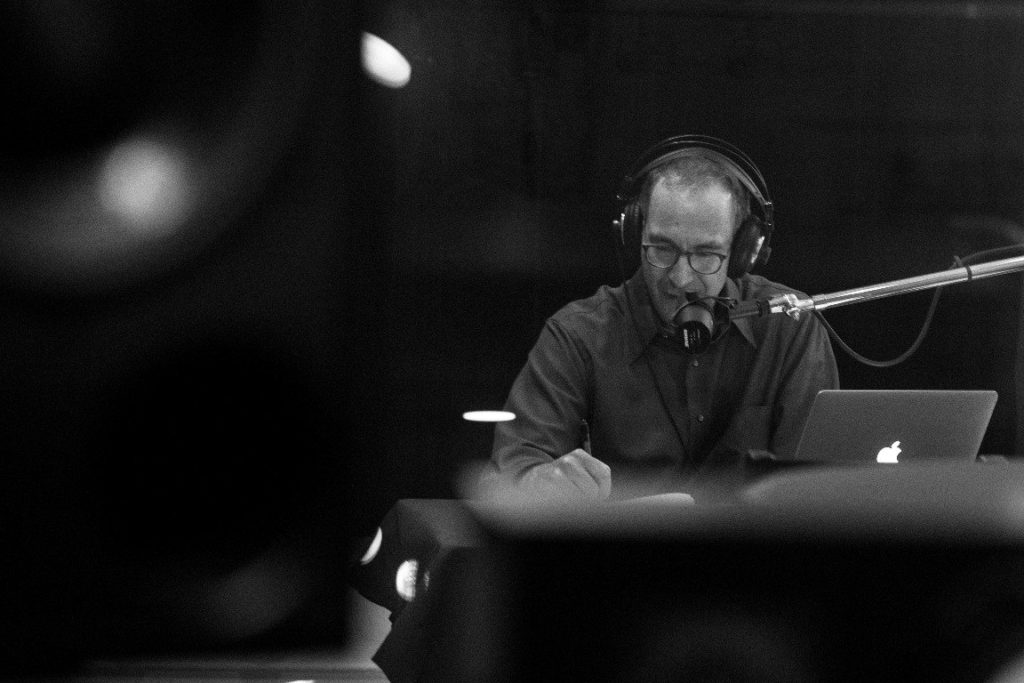Labor & Economy
LISTEN: Why Deloitte Believes That More and More Companies Are Becoming Socially Responsible
On the latest episode of “The Bottom Line” podcast, Deloitte Consulting’s Erica Volini explains what’s behind what the firm calls “the rise of the social enterprise.”

If companies often seem to stumble as pressure mounts on them to respond to major societal challenges, Deloitte’s Erica Volini isn’t surprised.
For executives to figure out what “they’re going to speak out on, and how they’re going to make decisions, and how they’re going to manage the impact of those decisions across all the various stakeholders is very new for a lot of organizations,” Volini, the U.S. Human Capital leader for Deloitte Consulting, told me on the latest episode of my podcast, The Bottom Line.
But just because this is new, Volini adds, it doesn’t mean that it isn’t real—and quickly gaining momentum. “We’re at the beginning of a trend here,” she says.
Volini and her Deloitte colleagues recently documented what they call “the rise of the social enterprise,” pointing to several factors that are pushing corporations to be mindful not just of how they’re performing financially, but also how they’re treating their employees and their customers and affecting their communities and society at large.
First, companies are eager to attract millennial talent and consumer dollars, and this generation is “actively questioning the core premises of corporate behavior and the economic and social principles that guide it.” Second, according to the Deloitte analysis, “businesses are being expected to fill a widening leadership vacuum in society” as government institutions falter. And third, the pace of technological change is accelerating, and many people are looking for business “to channel this force for the broader good.”
Of course, all of this can sound a little naïve at time when more than 40% of American families can’t afford a basic monthly budget, even though the vast majority of them are working households; trust in business is itself at a low ebb; and tech companies are under fire for “creating problems instead of solving them,” in the words of the New York Times.
What’s more, for all of Deloitte’s talk about companies becoming increasingly attuned to their “stakeholder network,” most corporations continue to act as though one constituency matters far more than all of the others: their shareholders.
Despite all of this, Volini is confident that more and more companies are, in fact, starting to consider a range of issues “beyond financial results” to a degree that they haven’t over the past 40 years. “I have faith,” she says.
One example she cites is Dick’s Sporting Goods, which took a stand on gun sales after the Parkland, Fla., school massacre. Another is Nordstrom, which has filled its new men’s store in New York with high-tech features but has also seized on “an opportunity to reskill the workforce” and “create net new jobs that haven’t existed before,” Volini says.
Volini suggests that other companies will show themselves to be similarly responsible as they learn to become better listeners.
They need to be “vested in what’s happening in the external environment,” Volini says. “That, in and of itself, is a huge shift because many companies operate within their own four walls.”
Another area ripe for improvement is breaking down silos across the corporation. Without constant collaboration among the chief financial officer, the chief marketing officer, the chief human resources officer, the chief information officer, and others, Volini says, it’s impossible for a business to gain the kind of holistic view that is required for it to truly understand its place in society.
“The CFO should have the voice of the investor community,” she says. “The CMO should have the voice of the consumer community. The CHRO should have the voice of the employee community. The CIO should be thinking about how do I take all these voices using analytics and pull them together to be able to drive insights.”
Yet 73% of the 11,000 business and HR executives surveyed by Deloitte said that their C-suite leaders rarely, if ever, work together on projects or strategic initiatives. Says Volini: “That was the most shocking aspect of the report.”
You can listen to my entire interview with Volini here, along with Marty Goldensohn reporting on BlackRock CEO Larry Fink’s call for companies to show how they’re making a “positive contribution to society” and Natalie Foster examining how the retail industry is being decimated by avarice, not just Amazon.

-

 Column - State of InequalityJanuary 22, 2026
Column - State of InequalityJanuary 22, 2026On Eve of Strike, Kaiser Nurses Sound Alarm on Patient Care
-

 The SlickJanuary 20, 2026
The SlickJanuary 20, 2026The Rio Grande Was Once an Inviting River. It’s Now a Militarized Border.
-

 Latest NewsJanuary 21, 2026
Latest NewsJanuary 21, 2026Honduran Grandfather Who Died in ICE Custody Told Family He’d Felt Ill For Weeks
-

 The SlickJanuary 19, 2026
The SlickJanuary 19, 2026Seven Years on, New Mexico Still Hasn’t Codified Governor’s Climate Goals
-

 Latest NewsJanuary 22, 2026
Latest NewsJanuary 22, 2026‘A Fraudulent Scheme’: New Mexico Sues Texas Oil Companies for Walking Away From Their Leaking Wells
-

 The SlickJanuary 23, 2026
The SlickJanuary 23, 2026Yes, the Energy Transition Is Coming. But ‘Probably Not’ in Our Lifetime.
-

 The SlickJanuary 27, 2026
The SlickJanuary 27, 2026The One Big Beautiful Prediction: The Energy Transition Is Still Alive
-

 Column - State of InequalityJanuary 29, 2026
Column - State of InequalityJanuary 29, 2026Are California’s Billionaires Crying Wolf?

